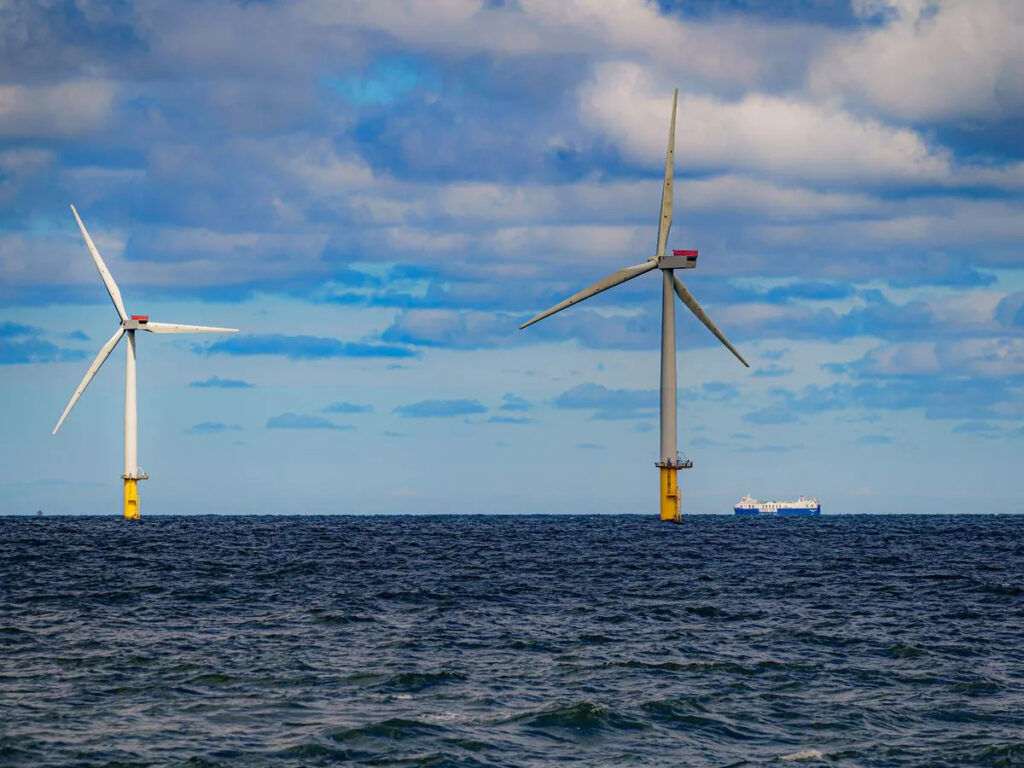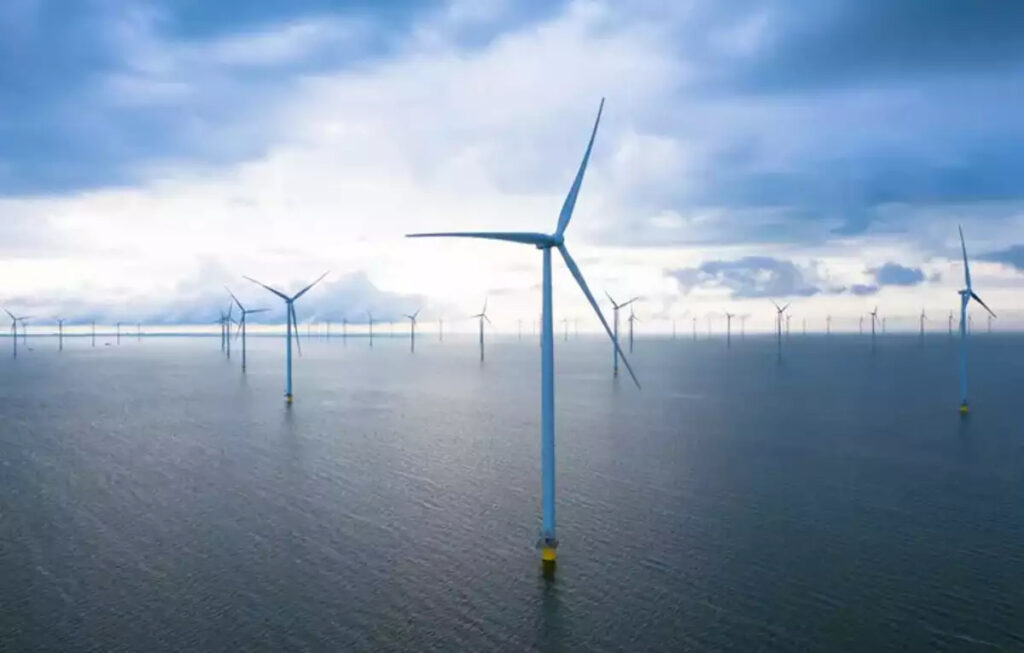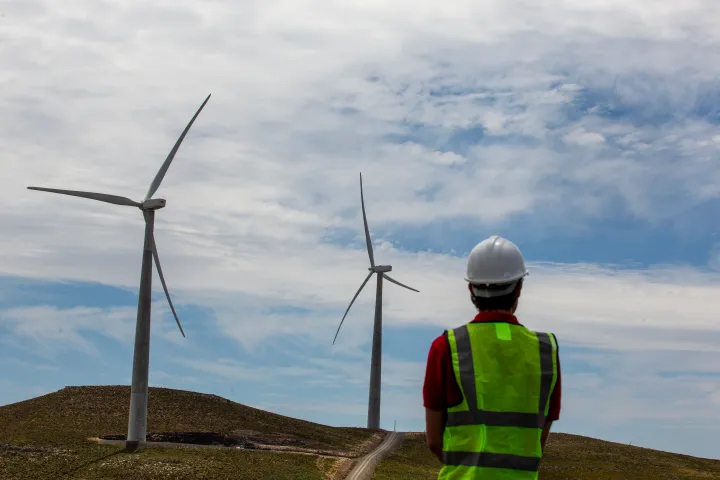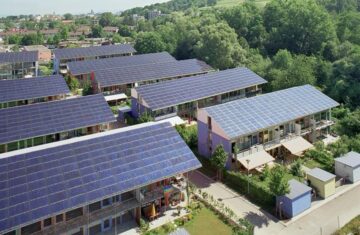The Growth of Wind Energy in Portugal
Wind energy has become a cornerstone of Portugal’s renewable energy landscape, significantly contributing to the country’s energy independence and sustainability goals. With its favorable wind conditions and robust policies, Portugal is emerging as a leader in wind energy generation in Europe. This article delves into the current state of wind energy in Portugal, its potential, challenges, and future prospects, supported by official statistics and credible sources.
Understanding Wind Energy

What is Wind Energy?
Wind energy is the process of converting wind into electricity using wind turbines. These turbines can be installed onshore or offshore, capturing the kinetic energy from wind to generate power. Wind energy is categorized into two main types:
- Onshore Wind Energy: Wind turbines located on land, typically in areas with high wind speeds.
- Offshore Wind Energy: Wind turbines situated in bodies of water, where wind speeds are usually higher and more consistent.
Importance of Wind Energy in Portugal
Wind energy plays a crucial role in Portugal’s renewable energy strategy. As of 2022, wind energy accounts for approximately 25% of the country’s total electricity generation, making it one of the leading sources of renewable energy in Portugal.
Current Wind Energy Capacity in Portugal
Installed Wind Capacity
As of 2022, Portugal’s total installed wind energy capacity reached approximately 10,500 MW. This impressive growth reflects the country’s commitment to transitioning to renewable energy sources.
Key Statistics
- Total Installed Wind Energy Capacity: 10,500 MW
- Annual Wind Energy Generation (2022): Approximately 25 TWh
- Percentage of Total Electricity Generation: 25%
Major Wind Farms in Portugal
Portugal is home to several significant wind farms that contribute substantially to its energy mix:
- Wind Farm in Alto Minho: One of the largest wind farms in the country, with a capacity of 150 MW.
- Wind Farm in Lares: Located in the northern region, this facility has a capacity of 120 MW and plays a significant role in local energy supply.
- Offshore Wind Projects: Portugal is also exploring offshore wind potential, with several projects in the planning stages.
The Role of Wind Energy in Portugal’s Renewable Energy Strategy

National Energy and Climate Plan (NECP)
Portugal’s National Energy and Climate Plan (NECP) outlines the country’s commitment to increasing the share of renewable energy sources. The plan aims for 80% of electricity generation to come from renewable sources by 2030, with wind energy expected to play a pivotal role in achieving this target.
EU Regulations and Support
As a member of the European Union, Portugal adheres to various regulations aimed at promoting renewable energy. The EU Renewable Energy Directive sets ambitious targets for member states, encouraging the adoption of wind energy.
Advantages of Wind Energy
Renewable and Sustainable
Wind energy is a renewable resource that produces minimal greenhouse gas emissions. It provides a stable and reliable source of energy, contributing to energy security and sustainability.
Economic Benefits
The wind energy sector creates jobs and stimulates local economies. According to the Global Wind Energy Council (GWEC), the wind sector in Portugal could generate thousands of jobs by 2030 through installations, maintenance, and research.
Energy Independence
Investing in wind energy reduces reliance on imported fossil fuels. This energy independence is crucial for enhancing national security and stabilizing energy prices.
Technological Advancements

Portugal has been at the forefront of wind energy technology, with continuous investments in research and development. Innovations in turbine design and wind farm management have improved efficiency and reduced costs.
Challenges Facing Wind Energy in Portugal
Intermittency Issues
One of the primary challenges of wind energy is its intermittent nature. Wind speeds can vary significantly, affecting the reliability of energy generation. Balancing this variability with energy demand requires advanced grid management solutions.
Environmental Concerns
Wind energy projects can have environmental impacts, such as noise pollution and effects on local wildlife. Comprehensive environmental assessments are crucial to mitigate these impacts and ensure sustainable development.
Regulatory and Bureaucratic Hurdles
Navigating the regulatory landscape for wind projects can be complex. Delays in obtaining permits and approvals can hinder the development of new wind farms, impacting overall growth in the sector.
Future Prospects for Wind Energy in Portugal
Technological Innovations
Advancements in wind turbine technology, such as larger and more efficient turbines, can enhance energy output. Furthermore, innovations in energy storage technologies will help manage the variability of wind energy.
Expansion of Offshore Wind Projects
Portugal has significant potential for offshore wind energy, particularly in its Atlantic waters. The government is actively exploring opportunities to develop offshore wind farms, which could greatly increase the country’s wind energy capacity.
Integration with Other Renewable Sources

Combining wind energy with other renewable sources, such as solar and hydro, can enhance energy security and grid stability. This hybrid approach helps balance supply and demand, especially during periods of variable weather.
Community Engagement and Investment
Encouraging community involvement in wind energy projects can enhance local acceptance and investment. Community-owned wind farms can provide economic benefits while promoting sustainable energy practices.
Conclusion
Wind energy is a vital component of Portugal’s renewable energy landscape, offering numerous benefits for energy security, sustainability, and economic development. With its extensive capacity and potential for growth, wind energy can play a crucial role in achieving Portugal’s energy and climate goals. While challenges remain, technological innovations and supportive policies can help Portugal harness its wind energy potential for a sustainable future.
References
- National Energy and Climate Plan (NECP)
- Global Wind Energy Council (GWEC)
- International Energy Agency (IEA)
- European Commission – Renewable Energy
- WindEurope



